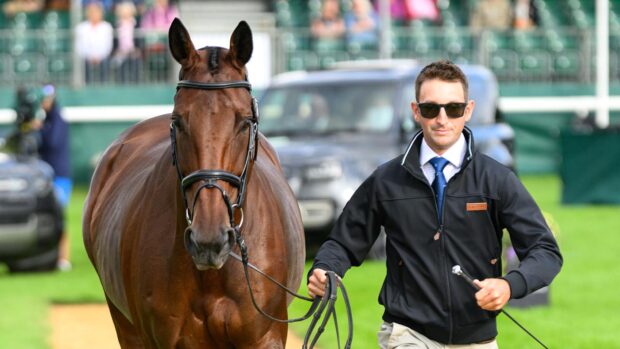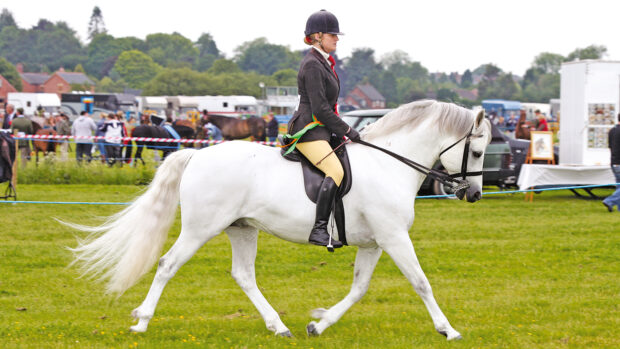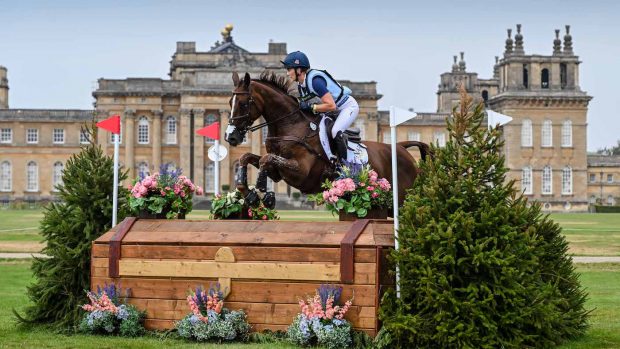THE fact horses are “still eating” should never be used as the determiner in quality-of-life assessments, experts agree, although many still use this as a main marker.
Sarah Voss, assistant teaching professor in equine internal medicine at Cambridge University, raised the issue as she said it is something she often sees.
“If they’re not eating, that’s bad and I’m worried, but if they are, it doesn’t mean it’s good; it doesn’t exclude pain or poor welfare,” she told H&H.
“I think it can be very easy to look for the positives as an owner as you’re keen for evidence the horse might be able to recover or that something can be done but the most common one I hear is ‘He’s still eating and drinking’. Then we have to discuss the other evidence.”
Dr Voss pointed out that, as prey animals, horses are “hard-wired” to appear in good health even if they are not, as predators will pick off weaker animals.
“They have so many compensating behaviours,” she said. “There’s something called sham eating, all part of the determination not to appear weak. Donkeys especially do it but horses too; they’ll have their heads down, in grass or hay or a bucket, but if you watch them, they’re just pushing it around.”
Dr Voss said pain-scoring systems exist, and much progress has been made in methods of determining welfare and quality of life. She advises seeking expert advice on a horse’s wellbeing from experts. Lucy Grieve, chair of the British Equine Veterinary Association ethics and welfare committee, agrees.
“The ability to quantify quality of life is a known problem,” Ms Grieve told H&H. “It’s important to get an impartial person, who’s not emotionally attached, who’s got the experience to know whether or not that horse has had enough. It could be your farrier, your vet, other experienced horse owners; people who will be honest.”
Ms Grieve said that when she was in practice, the “but he’s still eating” was something she frequently heard.
“There’s huge variation in how people see their animals’ quality of life,” she said. “Some will say if the horse can’t jump or compete and won’t be happy in the field, they’ll put him to sleep, which is fine, and better than neglect, but there’s the other extreme, which is this. I think owners can misinterpret signs as the horse being fine when its quality of life is questionable. It’s hard; we shouldn’t criticise people as it’s not ignorance or naivety; it’s hard to quantify when a horse has had enough.”
Ms Grieve agreed that horses are “programmed to look normal”, so will keep eating when dogs or cats might not.
“There was a pony with a prosthetic, and they were saying ‘He’s happy; he’s eating’, when the pony had the most obvious grimace, and was rocking back on its other feet,” she said. “The fact it’s eating doesn’t mean it’s OK. We have to be more careful how we judge; ‘He’s still coming for his food’, a lot of people say, but that’s not an indicator, it’s much more complex than that.
“Get impartial advice, from trusted sources, and be conscious that euthanisa is a welfare-friendly, ethical process that will always be better than the potential alternatives. It will always be difficult, but their ability to keep going is not a good reason to delay the decision only you can make. Better a week early than a day late.”
Sam Chubbock, Head of UK support at World Horse Welfare, told H&H there are many factors that need to be taken into consideration when assessing any horse’s quality of life.
“Ongoing assessment of the possibility of illness and/or pain is an essential part of horse care, and the individual horse’s quality of life is a key factor in these assessments,” she said.
“Many people understandably feel uncomfortable considering euthanasia as an option, and we know there are often feelings of guilt as well. However, euthanasia is often a very responsible decision and is not the worst outcome possible, so should not be thought of only as a last resort. While it is true that quality of life will vary from horse to horse, delaying euthanasia can lead to owners wishing they had been brave enough to make the decision earlier. There is lots of advice out there, and anyone concerned about this aspect of horse care can contact our advice line and talk to one of our compassionate, knowledgeable team.”
You might also be interested in:

Better a week early than a day late: the hows and whens of equine euthanasia

Far worse fates than death: racehorse trainer speaks out on humane euthanasia

Subscribe to Horse & Hound magazine today – and enjoy unlimited website access all year round
Horse & Hound magazine, out every Thursday, is packed with all the latest news and reports, as well as interviews, specials, nostalgia, vet and training advice. Find how you can enjoy the magazine delivered to your door every week, plus options to upgrade your subscr





